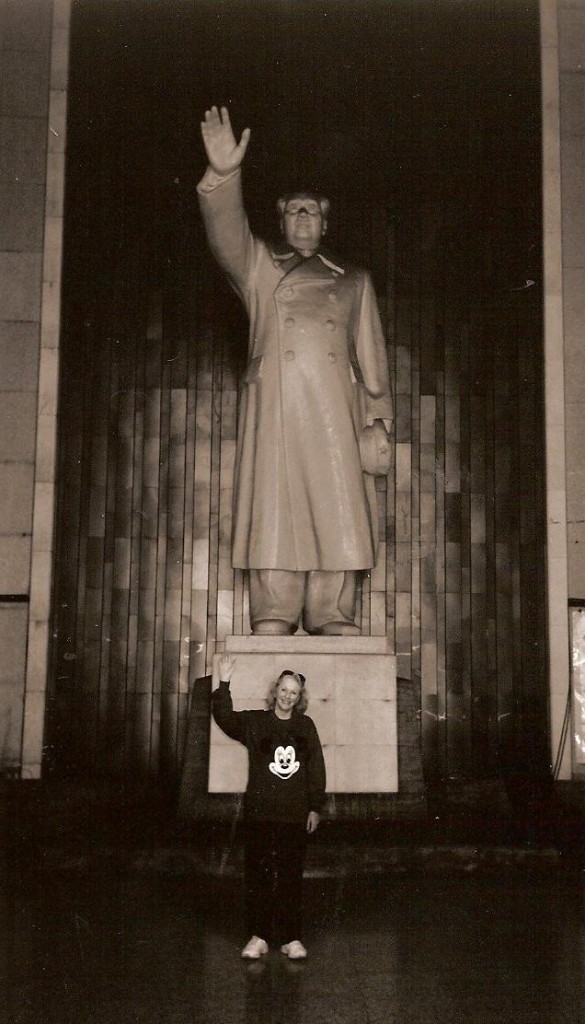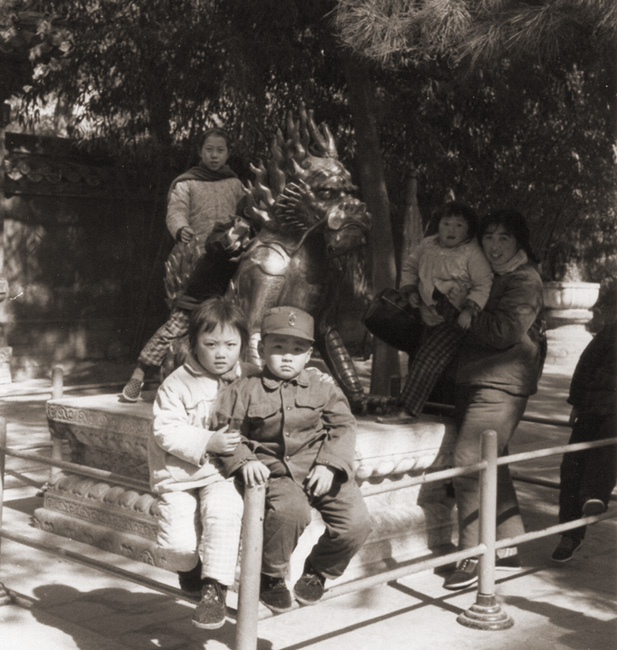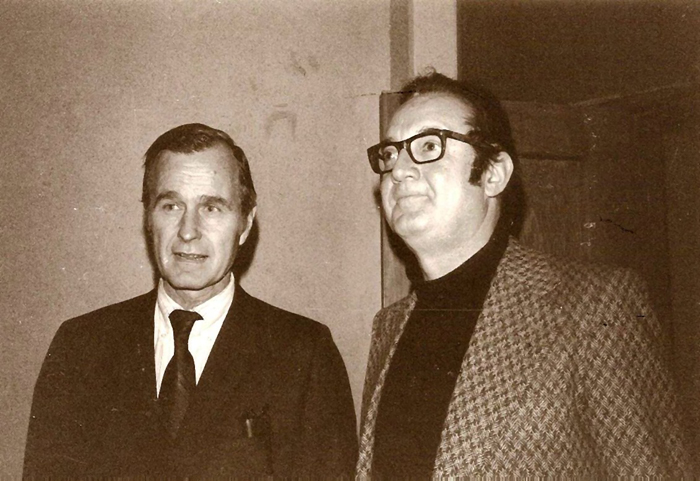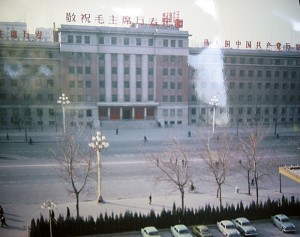Chapter Thirteen
I WANT TO GO TO SHANGHAI
It took almost daily trips to China Travel office, and endless arguments in English and charades, but I finally convinced the mysterious powers who were always higher up and had to be consulted no matter what you wanted to allow Marge, Torrie and me to go to Shanghai. Our visa out of Peking and into Shanghai was finally granted.
More than I wanted to see Shanghai I wanted to ride the train that Marlene Dietrich had made famous in Josef von Sternberg’s 1932 film “Shanghai Express”. Marge and Torrie weren’t easy to convince taking this train to Shanghai was a great idea. And the Chinese hierarchy, China Travel, hadn’t been easy to convince either. But I finally convinced the Levys that the antique pickings might be good for them in Shanghai so they decided to join me on the Shanghai adventure. And it turned out the antique buying opportunities in Shanghai were fabulous.
We booked a compartment meant to accommodate four and split the extra ticket. Sharing the small compartment with a stranger hadn’t appealed to us. And we definitely needed that extra upper berth for luggage. I maneuvered myself aboard with four bursting suitcases and hand parcels of every shape. I can’t even begin to explain what the decorator/antique dealer mother – daughter team carried on board. While visions of gorgeous Marlene Dietrich riding the legendary train in the middle of China’s civil war, with never a bird of paradise feather or hair in her well coiffed head out of place, the reality was we were an American version of all those peasants with their bundles of belongings and livestock boarding the back cars of the train.
The train left Peking Station at 6:30 in the evening and our Peking interpreter got us there extra early. He herded us and our luggage porters through the crowded station most skillfully. We were extremely excited about this 24 hour adventure we were taking on our own. This was our first time traveling without guide or spy. Our entourage filed past hardback cars like we’d ridden from Tientsin to Peking early in our China trip. Twenty-four hours in those uncomfortable quarters certainly didn’t appeal to us. But the military and peasants who filled them to over flowing were all laughing, talking, munching and spitting watermelon seeds, smoking endlessly, and apparently quite happy.
The car of private compartments we were led into was a delightful surprise. Our little nest, Compartment D, featured teal blue velvet seats backed with lovely handmade white filigree and lace covers. Great piles of pillows, encased in shams embroidered quite elegantly in blue flowers and white on white embroidery looked most inviting.
Between the two bed-seats, was a table draped with a white lace cloth. Four of the ever-present covered tea cups (these decorated with skillfully hand painted trees, flowers and pagodas) and a blue and white porcelain pot holding a live purple cineraria plant sat on the table.
The window was draped in blue velvet and curtained in white lace. Strains of Chinese opera played over the loud speaker — and it was loud! Air conditioning was working and just the right temperature. Lighting was better than the Peking Hotel. A table lamp of bright blue and clear cut glass, and two sidelights, shed more light than we’d had in any bedroom the entire trip.
Bathroom facilities were at either end of the railroad car. One was quite passable, the other an unusual standup affair used in China at the time that will never be popular with American women and hell to try to maneuver on a fast-moving train on a bad roadbed. The washroom area, like hotel rooms and western restrooms throughout China, offered little wrapped cakes of soap, a nail brush, clean comb, pink toilet paper, and spotless thin white Turkish towels. There were two clean sinks and a young girl was always mopping the floor or cleaning the sinks.
Our interpreter handed us our tickets and visas, as always, at the very last moment when the engine had a full head of steam up and was ready to roll. Now we were really on our own. No one else on the entire train spoke English. Well, if they did they were there to spy on us and we never had a clue they did speak English.
Other than an armed policeman stationed two compartments down from our car, and a few kitchen workers, the entire work crew of the Shanghai Express was young women. The engineer up in the steam locomotive and the conductors of each car were women. And it was young women who were up front shoveling coal to keep up the steam for our engine.
Not unexpectedly, we saw very little of the people in the luxurious compartments in our car. But from what we saw they were all middle European with the exception of an attractive Chinese family from France with whom we could speak French. The father helped Torrie clean the train windows at every stop so that we could take pictures through them.
Dinner in the diner turned out to be just like every other dining experience outside our hotels for Westerners, it was cleared of Chinese before we could go in. The stewardess came to our compartment to lead us into the deserted dining car. Since our interpreter had preordered for us, everything that was placed before us on a table covered with starched damask napkins was a surprise. Cooking under the most limiting conditions, the crowded tiny train kitchen produced shrimps in spicy tomato sauce, pork-like baby veal with winter bamboo shoots (we all missed Steve when this appeared), and dinner ended with a most creative fruit soup, a large bowl of steaming sweetened broth with chunks of apple and tangerine sections swimming about in it.
One of the young women working in the dining car had her little girl traveling with her. As we were enjoying our hot fruit soup we could hear the tiny child singing quietly to herself at the far end of the car. With a bit of urging, charade style of course, she came and sang for us. And she even did a bit of dancing for encore. There were no guards watching, no cadres leering mysteriously. It was a lovely relaxed interlude filled with warm camaraderie. While we were still lingering over tea and cigarettes (yes, in those days we all smoked), our little entertainer was carried protesting past us to the nearest bathroom. Her mother was carrying her under one arm with a cup, toothbrush and tooth paste in the other. The child held out her arms to us, probably hoping we’d ask for one more song and thus prolong bedtime.
Following dinner we were escorted, past the armed guard, back to our compartment. We weren’t going anywhere on that train other than from our car to the dining car. There was no mingling with the Chinese passengers.
Our berths were made up for night when we returned. Crispy white sheets edged in floral embroidery covered them, and a cozy quilt was there for warmth. Torrie got the second upper berth, the one that wasn’t overflowing with luggage. She had long legs and youth in her favor. There were none of the ladders that were supplied for upper berths on the trains I’d traveled on in days past, the Super Chief, Broadway Limited, Sunset Limited — that transported us around America in style. Torrie had little chrome footholds about three inches by four inches, three feet off the floor, and agility to get her up to her bed. The ascent was complicated. It involved putting one foot on the lower berth, the other foot on the foothold, grabbing on to anything solid available and pulling yourself up.
We were completely comfortable in our snug little world. The roadbed our train traversed was as smooth as the one from Tientsin to Peking had been miserable. We all fell into deep sleep, Marge and I enjoying the nostalgic “Blues in the Night”(1) train whistles and the clattering wheels. But we did awaken when the sounds ceased at a station stop in the very late hours of the night. Peeking through the curtains we saw a platform solidly packed with young boys in thin cotton military uniforms. As we looked at them, hundreds of pairs of eyes stared back at the two strange white faces with hair in curlers looking out at them.
A harsh blast of martial music over the intercom brought us out of our deep sleep at 6:00 AM. Marge found the speaker control fast and cut off the music as well as the endless shouted propaganda that would follow. But with daylight allowing us to see China out there just through the curtains, there was no going back to sleep for any of us. We passed canals with sampans and junks under full red sail, small tugs pulling ten boats loaded with coal or grain in a row sailing parallel with us. There were straw and mud huts with children and big black pigs wandering in and out the small front doors. The mysterious wonder of China continued to unfold — graceful little rock bridges out of classical Chinese painting, occasional forbidden burial graves — half-hidden mounds of earth with small piles of rocks on top and an occasional stone slab. We’d been told the Mao regime was very firm in forbidding burials in the ground. They felt too much precious agricultural land was wasted by large gravesites. Cremation was expected.
Then we were in area where thatched roofs replaced the familiar blackened red tiles of our previous travels in China. Piles of orderly pine boughs banked the front of each little rock house. Small umbrella pine trees covered an area of barren rocky hills; later green stretches appeared where goats and sheep grazed.
We were waiting now for 12:13 when our train would cross the legendary Nanking Bridge. The accurate time for this adventure had been garnered through the usual hand movements and drawing little pictures procedure during dinner the previous night. The Nanking Bridge was the first Chinese railway-highway bridge built over the Yangtze River designed by a Chinese architect and is the longest bridge of its kind in China. The Chinese were very proud of this bridge and with good reason. They built it in spite of western engineers proclaiming quicksand and Yangtze tides prohibited a bridging structure of any sort in this area. The Soviet engineers, who originally drew up blueprints, withdrew with their blueprints and modern machinery in 1960, leaving the Chinese completely on their own. However, by 1968 the Chinese had completed the two-tiered bridge using methods entirely primitive to western engineering. It was done the ancient way, hauling materials in baskets suspended from bamboo poles carried on peasant shoulders, of moving giant steel girders by men’s strength, not modern cranes. Tens of thousands of men and women participated in this miracle of construction.
The highway part of bridge is 15,056 feet long and 49 feet wide enabling four normal size cars to cross at same time. The 22,218 foot railway enables two trains going in opposite directions to run simultaneously. At 279 feet, the highest point of the main bridge span, vessels of up to 10,000 tons can pass underneath. Twin bridge towers are found on either river bank. Elevators in these give access to the railway bridge, highway bridge and top observation post. A most impressive accomplishment indeed!
At 12:13 precisely we crossed the amazing bridge. The excitement was more in the anticipation than in the reality since being on the lower level what we saw mainly was glimpses of the Yangtze River through all the criss-crossed steal girders. Had we crossed on the highway above us we would have seen groups of sculptures of peasant workers and soldiers and on the sides of the great towers quotes from Chairman Mao in huge red characters. One well known quote found there read: “The people are the only hope, are the driving force behind world history.” This could well be the quote for the incredible success of China in 2009!
Once over the bridge we continued to watch the spectacle of the mysterious world of China rolling past our window. Filtered dramatically by the endless steam blowing past we watched women bent in two working in the flooded rice fields; the gigantic canal being dug with shovels by hundreds of women and children; children near the tracks in the middle of nowhere waving at the train or just staring in wonderment. Sometimes the adults would wave too.
1. A popular 1941 song in the United States written by Harold Arlen and Johnny Mercer that was recorded by all the leading singers of the day. Train whistles were incorporated with the background music in certain segments of the song.
Chapter 1: Part 1 Part 2
Chapter 2: Part 1 Part 2 Part 3
Chapter 3: Part 1 Part 2 Part 3 Part 4
Chapter 4: Part 1
Chapter 5: Part 1 Part 2 Part 3
Chapter 6: Part 1 Part 2 Part 3
Chapter 7: Part 1
Chapter 8: Part 1 Part 2
Chapter 9: Part 1 Part 2
Chapter 10: Part 1
Chapter 11: Part 1 Part 2
Chapter 12: Part 1
Chapter 13: Part 1
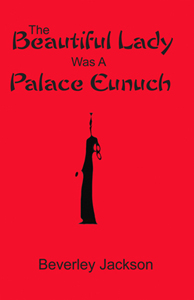
This blog was started to sell my new book and I keep going off on other topics. Please do check out The Beautiful Lady Was A Palace Eunuch
Kathleen Fetner, Technical Advisor and Friend

